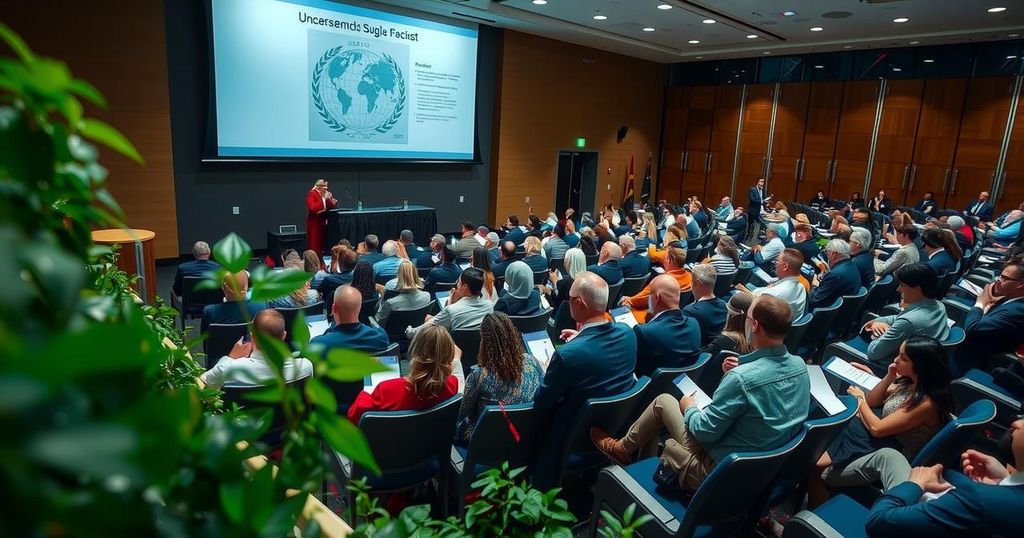Challenges and Historical Failures of UN Climate Conferences
UN climate conferences, like the recent talks in Baku, have historically struggled with consensus and negotiation failures. Key summits, including COP6 and COP15, have highlighted the difficulties of achieving binding agreements due to disputes among nations. Recent biodiversity talks also ended without a viable commitment, reflecting ongoing challenges in global environmental negotiations.
Negotiators at the recent UN climate talks in Baku face significant challenges as they strive to reach an agreement, a predicament not unfamiliar to past conferences. Since the inaugural UN climate conference in 1995, various sessions have faltered due to inability to achieve consensus, such as at COP6 in The Hague in 2000, where discussions were ultimately suspended. The prevailing contention centered around the appropriate use of land-use credits in emissions reductions linked to the Kyoto Protocol. The election of climate skeptic George W. Bush led to a revival of negotiations in Bonn, showcasing the determination of the European Union and other countries to make progress despite the disbandment of the treaty.
The infamous COP15 summit in Copenhagen in 2009 serves as another notable instance of unmet expectations. Fueled by optimism from President Barack Obama’s commitment to rectifying previous policies, the conference attracted global leaders. However, inertia prevailed as key negotiations were expected to be driven by these leaders, causing resentment among smaller countries excluded from critical discussions. The outcome was the inadequate Copenhagen Accord, which failed to establish binding emission cuts while providing a promise of financial aid for developing nations to combat climate impacts. The agreement, however, lacked formal recognition due to dissent from a few nations.
More recently, the biodiversity COP16 in Colombia also concluded without reaching a consensus on essential financial commitments to halt ecological degradation. The Colombian presidency encountered difficulties securing enough attendees for decision-making as many delegates had departed. This scenario reflects a recurrent theme in UN negotiations, where logistics and dynamics decisively influence outcomes and hinder progress toward addressing pressing global environmental challenges.
UN climate conferences, a platform designed for international cooperation on climate change, have faced notable challenges since their inception. Historically, these negotiations have struggled with disputes and lack of consensus, crucial for agreements to take effect. Events like COP6 and COP15 illustrate how unmet expectations and internal divisions can undermine the objectives of these significant summits. In addition, recent biodiversity talks highlight ongoing obstacles in achieving global consensus necessary for effective action against ecological crises. These instances underscore the complexity of climate diplomacy amidst varying national agendas, interests, and logistical issues.
In summary, the current state of UN climate talks reveals a persistent pattern of challenges characterized by negotiation breakdowns and a lack of consensus. Past conferences, notably COP6 and COP15, depict how internal disputes can stymie progress and result in unsatisfactory agreements, exemplifying the difficulty of uniting global efforts to combat climate change effectively. The recent failure to achieve consensus at COP16 further emphasizes these challenges, calling for a reevaluation of strategies to enhance diplomatic negotiations.
Original Source: www.al-monitor.com




Post Comment